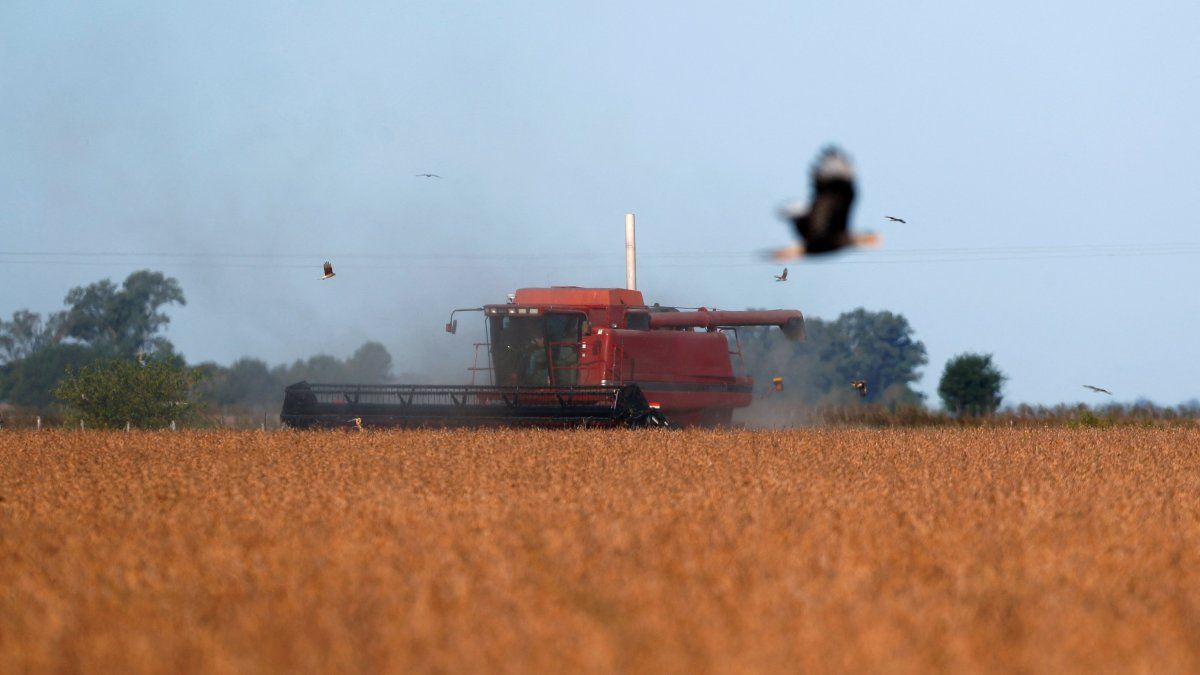The discussion about withholdings once again occupies a central place on Argentina’s agricultural agenda. Producers and rural entities insist on the elimination of this tax, arguing that it affects competitiveness, discourages production and deepens inequalities in the sector.
Now, The Confederation of Rural Associations of Argentina (CRA) warned that withholdings are destroying the economic base of agriculture. In a recent statement, they pointed out that this tax, applied to strategic crops such as soybeans, corn and wheat – among others – represents a transfer of resources from the interior to the State, which negatively impacts regional economies.
The panorama is complex, because other complications are added to the high tax burden, the most difficult to avoid being climate-related. It happens that the lack of rainfall is beginning to be reflected in the water condition of the crops in the thick season, specifically soybeans and corn. At low returns, the further away we are from finding the point of indifference in the business, which is increasingly higher for those who decided to risk once again in this open-air industry when spring began.
The outlook is complex for soybeanswhich in the last week suffered a cut of 200 thousand hectares in its planting estimate for the reasons stated. So much so that the Buenos Aires Grain Exchange (BCBA) adjusted downwards the percentage of crops planted that are under optimal or adequate conditions. It is the result of the low occurrence of rain that could worsen during the first fortnight of the current month.
Regarding corn, the Buenos Aires entity confirmed that at the national level 87.4% of the 6.6 MHa estimated for the current campaign have already been planted. The most affected is early corn, which was an almost mandatory choice this year due to the risk of leafhopper. The first stages of the cycle (spring) had good water supply, but the lack of rain in December deteriorated the situation.
The question that many ask in agriculture is whether, after what happened with Surcos and the companies linked to Los Grobo, a “domino effect” where companies, agronomy and producers appear. Leonardo Sarquis, former Minister of Agribusiness in the province of Buenos Aires and private consultant with extensive experience in the agribusiness sector, assured Ámbito that what happened with these companies “were particular cases” and emphasized the behavior of the agricultural sector. the inputs during the last time.
According to Sarquis, “There was a very exaggerated demand on the part of the producers, because they were actually looking to buy dollars in the form of a product. The prices of grains and inputs fell, exchange rate stability arrived and the high tax burden that deprives producers of profitability remained. It is evident that there were commitments that were made with the reference of a higher dollar and today no one knows for sure what campaign we are going to have.”
For a former Buenos Aires official, “the key is the next 90 days until the end of the campaign, to see who wants to finance themselves, how they do it and who finances the producers who need those 90 days to accommodate themselves. “We have to be alert, because we don’t know what can happen later if prices continue to fall.”
Another expert in the input sector with enormous experience is Luis Mogni, consultant and partner of Consultora Somera SA and organizer of the Agricultural Distributors Congress that will be held at the end of April in the City of Buenos Aires. Given the effervescence that agriculture is experiencing, he explained to Scope that “the macro is changing for our country and that changes how we make decisions to get here and from now on. For a long time the most important variables were devaluation and inflation that accommodated everything. Having stocks was good but today it is the opposite. 2024 was very uneven at a productive level. On the other hand, we see a scenario where the macro begins to be more stable, therefore we must see how we work on efficiency.”
According to Mogni, the year for inputs was very bad. The specialist – who organizes each year the most important event in the country for the distribution and agronomy sector – warned that in 2024 there will be a drop of more than 30% in the agrochemical market, a drop that will be around 15%. and 20% in the area planted with corn. This occurs in a context of leases agreed upon at very high prices where to obtain profitability it is necessary to seek very high returns, “that is why there is a lot of noise in the production system and a prompt review and rapid reduction of export duties is needed, especially all to improve the incentive to produce more and more and incorporate technology.”
The debate in agriculture is latent, because in a scenario where grain prices remain low, if there is no reduction in withholdings, it is likely that the primary sector itself will vigorously demand a devaluation, which would allow the red boxes to be erased in the excel. and improve the equation for various links in the production chain.
Meanwhile, the climate will leave the country extremely uneven from the point of view of yields, which is why what the Government can do will be decisive.. If you do not touch the export rights (DEX), you should think about reducing the “Argentine cost” that is so often talked about. A country that is heterogeneous in productivity is of no use to anyone, which is why it is essential to review what can be done to regain enthusiasm and erase the uncertainty among those who define what will happen during the next agricultural cycle.
Source: Ambito




